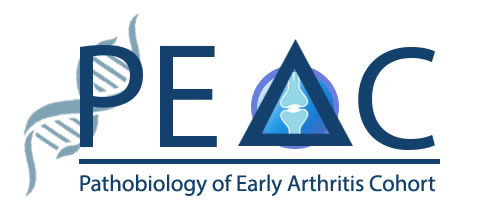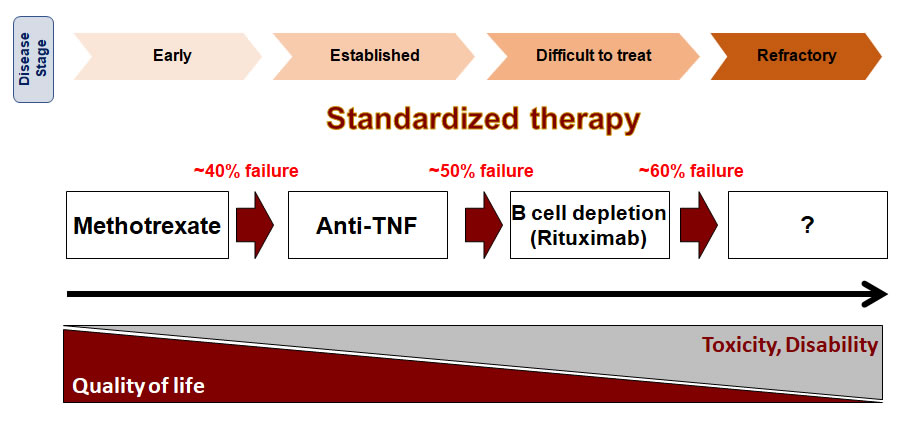



Building on the results from the PEAC study, we have now extended recruitment to patients at different stages of disease progression and treatment exposure.
Specifically, PEAC/PEsAC will recruit:
Patients at all at all stages of treatment exposure will be recruited, including:
Patients with established inflammatory arthritis recruited into PEsAC will include patients in whom multiple biologic medications (bDMARDs) have been ineffective.
These will be classified as Difficult-to-Treat, as per EULAR’s definition of Difficult-to-Treat RA and Refractory, i.e. patient in whom all available treatment lines have been unsuccessful.
Current guidelines define fixed therapeutic pathways. When these options persistently show no effect, patients risk reaching the “end of the pathway”, where they can’t be given any additional treatment except for painkillers and steroids. Although new medication have expanded our therapeutic choices, many patients are at risk of becoming treatment-resistant/refractory. Currently, however, we have no way to predict which patients will most likely fall in this category and, most importantly, we are not able to identify treatment-resistant patients.
The analysis of patients recruited into PEsAC will allow to overcome this limitation, with the aim to define clinical and molecular features of difficult-to-treat and refractory patients, including the opportunity to identify new therapeutic targets.
